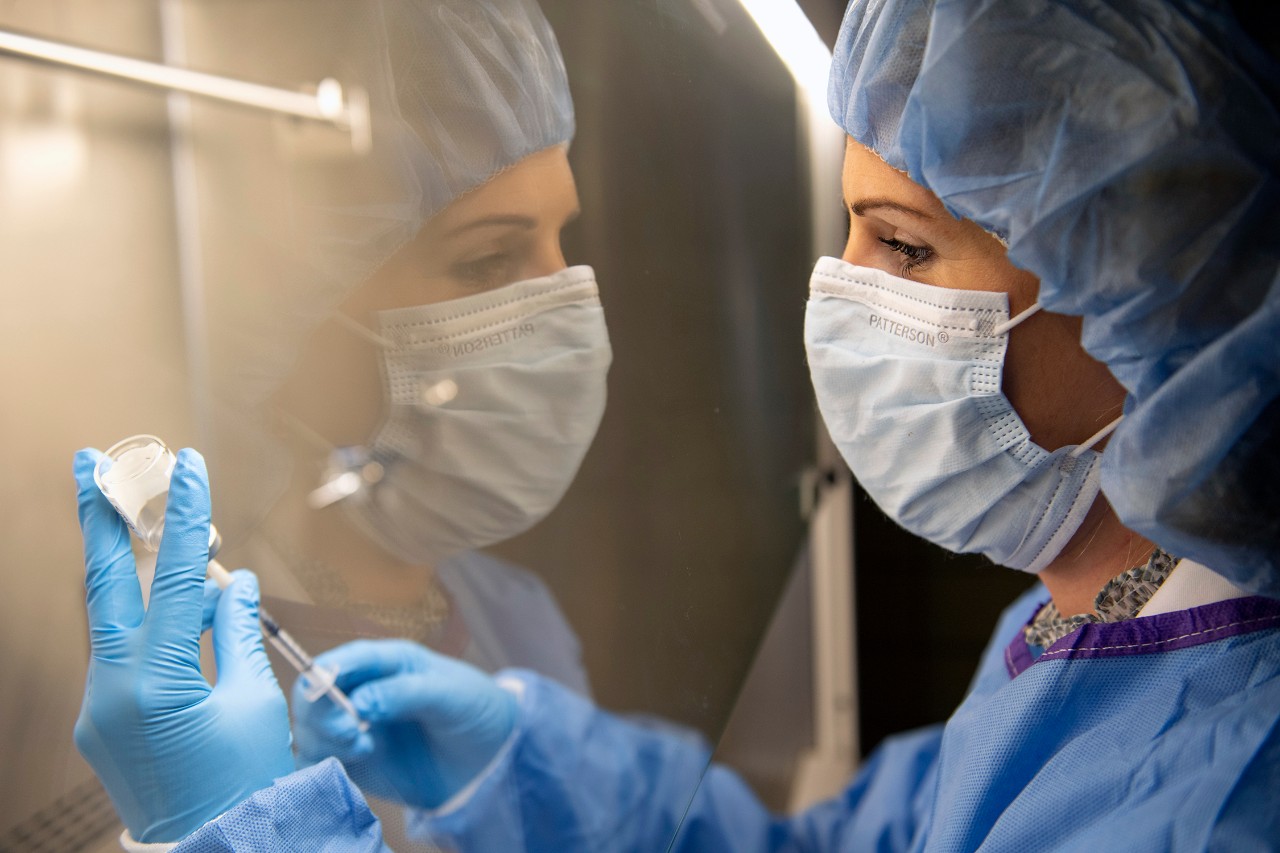
Cincinnati.com: UC joins national COVID impact study; you could be recruited for it
UC expert provides details on COMPASS study
Maggie Powers-Fletcher, PhD, of the Division of Infectious Diseases at the UC College of Medicine, was interviewed by Cincinnati.com about the COMPASS study she is leading. The study is part of the efforts by the COVID-19 Prevention Network launched by the National Institute of Allergy and Infectious Diseases at the U.S. National Institutes of Health. It will examine the impact of COVID-19 on communities across the United States.

Maggie Powers-Fletcher, PhD, of the Division of Infectious Diseases at the UC College of Medicine. Photo/Colleen Kelley/UC Creative + Brand
When the study is ready for enrollment, residents who happen to be in several pre-selected locations, or "pop-up sites" in public spaces around Cincinnati, will be recruited. The sites and recruitment efforts won't be announced in advance, so as not to taint the integrity of the study.
"I think it’s so cool that Cincinnati is involved and there’s no one else in our region that is doing this. This helps put Cincinnati on the map," Powers-Fletcher said. "This gives our community a voice in the larger federal government response of how we’re approaching solutions and approaching research related to this pandemic.”
Read the entire story here. See more coverage of the story from WLWT, WVXU and the Cincinnati Business Courier. Read more about the COMPASS study here.
Lead photo/Colleen Kelley/UC Creative + Brand
Next Lives Here
The University of Cincinnati is classified as a Research 1 institution by the Carnegie Commission and is ranked in the National Science Foundation's Top-35 public research universities. UC's medical, graduate and undergraduate students and faculty investigate problems and innovate solutions with real-world impact. Next Lives Here.
Related Stories
Love it or raze it?
February 20, 2026
An architectural magazine covered the demolition of UC's Crosley Tower.
Social media linked to student loneliness
February 20, 2026
Inside Higher Education highlighted a new study by the University of Cincinnati that found that college students across the country who spent more time on social media reported feeling more loneliness.
Before the medals: The science behind training for freezing mountain air
February 19, 2026
From freezing temperatures to thin mountain air, University of Cincinnati exercise physiologist Christopher Kotarsky, PhD, explained how cold and altitude impact Olympic performance in a recent WLWT-TV/Ch. 5 news report.
